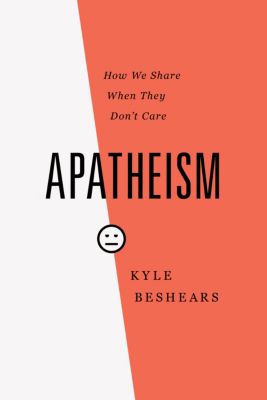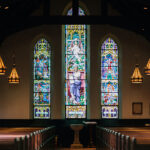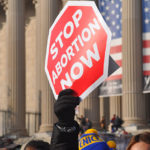
Fewer than 2 in 5 Americans who never attend religious services (37%) call their life exciting, while 59% say they find life “pretty routine.”
By Aaron Earls
To add some thrills to life, people often try extreme sports or look to visit some place new and different. But for those who never attend religious services, excitement may be waiting at the church around the corner.
More than a third of Americans (34%) say they never attend a religious service, according to the General Social Survey (GSS). For the first time, that percentage is higher than the percentage of those who attend at least monthly.
Among those who never attend a religious service, around 3 in 5 (59%) say they find life “pretty routine.” Another 4% describe their life as dull. Fewer than 2 in 5 (37%) call their life exciting, according to the GSS.
The last time a majority of Americans who never attend church described their life as exciting was in 1976 (52%). That year, however, just 12% of Americans never went to church—almost a third of the percentage who never attend today.
Currently, those who never attend religious services are 9% less likely than the average American to consider their life exciting, and 9% more likely to say their life is routine.
Those who never attend religious services are 9% less likely than the average American to consider their life exciting and 9% more likely to say their life is routine. Click To TweetAs a whole, 52% of Americans currently describe their life as routine, 43% say it is exciting, and 4% call it dull.
Pandemic dip in excitement
With its disruptions to the regular rhythms of life, including church attendance, the pandemic seemed to make Americans view their lives as less exciting.
Since the early 1970s when the GSS began surveying Americans, the percentage of those who described their life as exciting was slowly but steadily increasing, from 43% in 1974 to 51% in 2018. In 2021, however, when the GSS began using online surveys for the first time, just 35% said the same. This marked the lowest in the history of the GSS. The number rebounded in 2022 but only to the previous low mark of 43% from 1974.
Never-attenders experienced an even steeper drop. In 2018, 48% called their life exciting, but that dropped to 29% in 2021. Meanwhile, those describing life as routine jumped from 47% to 63%.
Other “routine” groups
Some demographic groups less likely to attend church are also less likely to describe life as exciting. Those who describe themselves as lower (25%), working (40%), or middle class (47%) are less likely to view life as exciting than upper-class Americans (63%).
Most demographics, however, defy the trend, meaning some relationship exists between a lack of church attendance and a view of life as less exciting.
Statistically, never attending church increases the likelihood someone is unable to see the excitement in their life. Click To TweetThere is no distinct connection between age and view of life, despite those under 35 being among the most likely to never attend religious services. In 2021, young adults, those 18 to 34, were the most likely to see life as routine (63%). In 2022, however, they were the least likely (48%).
Before 2012, there was an excitement gap between Republicans and Democrats. Since that time, however, there’s no consistent and significant difference between members of the two political parties in terms of how exciting they view life to be. Conversely, the attendance gap has only grown. Today, Democrats and Independents are much more likely to say they never attend church than Republicans.
The same is true for race. There is no discernable trend among viewing life as exciting comparing white, Black, and those of other ethnicities, despite white Americans being the most likely to never attend church.
Married adults are more likely to attend church regularly. But since the 1970s no marital status has been consistently more likely to see their life as exciting. Meanwhile, men have consistently been more likely to never attend religious services than women but also consistently more likely to describe life as exciting.
On the surface, church attendance may not seem thrill-inducing to either those on the outside who see it as unnecessary or maybe even some on the inside who treat it as just another aspect of life. Statistically, however, never attending church increases the likelihood someone is unable to see the excitement in their life.
For permission to republish this article, contact Marissa Postell Sullivan.












